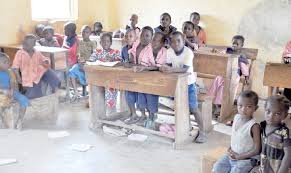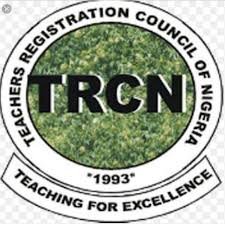As the indefinite strike by primary school teachers in the Federal Capital Territory (FCT) stretches into its 86th day, the Nigeria Labour Congress (NLC), FCT Chapter, has issued a stern seven-day ultimatum to the FCT Administration, demanding an immediate resolution of the crisis. The strike, which has paralysed academic activities in over 400 public primary schools across the six Area Councils, began on March 24, 2025.
New ₦70,000 Minimum Wage Palaver
The root of the crisis lies in the failure of the Area Council chairmen to implement the new ₦70,000 minimum wage and clear months of outstanding salary arrears, despite a binding agreement brokered in December 2024. The NLC, in a letter dated June 11, 2025, and signed by its FCT Chairperson, Comrade Stephen Knabayi, threatened mass mobilisation and picketing of the FCT Administration offices if the issues remain unresolved by Thursday, June 19.

Failure to Act Within Seven Days
“The NLC FCT Council has written several letters seeking an audience with you, but none have been honoured,” the letter stated. “Your refusal to act on our position letters and demands served on April 24 and again on May 16, 2025, is noted with displeasure… Failure to act within seven days will result in the picketing of FCTA offices on June 19.”
Protracted Strike

The protracted strike is the result of a breached Memorandum of Understanding (MoU) signed on December 11, 2024, by the FCT Administration, the Nigeria Union of Teachers (NUT), Nigeria Union of Local Government Employees (NULGE), and the NLC. Key provisions of the MoU included implementation of the ₦70,000 minimum wage from January 2025, phased payment of at least five months’ arrears, and 50% allocation of Internally Generated Revenue (IGR) from the Area Councils to finance these obligations.

MoU
A tripartite implementation committee chaired by Minister of State, Dr. Mariya Mahmoud, was established. However, none of the MoU’s provisions have been implemented, prompting the ongoing standoff.
In a bid to understand the human cost of the crisis, Africa Health Report visited affected communities and spoke with teachers and students caught in the middle of the impasse.
Pupils’ Voices
Nine-year-old Emmanuel, a pupil at a government primary school in Dutse, Bwari Area Council, shared his frustration with Africa Health Report:
“My name is Emmanuel. I attend the government primary school in Dutse. We have been on strike since before the Easter celebration. Since then, we have been home. We are six in my family, and my dad is dead. My mum doesn’t have money to change my school, that’s why I’m still home. I miss school. I really want to go back. I can’t wait for us to resume.”

Another child, Ali, also from Bwari, recounted how the strike has shifted his life from the classroom to the market:
“My name is Ali. My dad is a trader. For the past three months, I have been helping him to hawk tomatoes and pepper. I’m really tired of staying at home. I want to go back to school. I hope the Nigerian government does something about the salaries so I can return to class.”
Teachers, too, say they are caught between compassion for their pupils and desperation over unpaid wages. A primary school teacher in Duste Makaranta, Bwari, who spoke under anonymity, told Africa Health Report that the inaction of local authorities has pushed them to the wall.
“The problem is with the local indigenes in charge. I heard that Wike has released the funds to pay our salaries, but the council chairmen are sitting on the money,” she alleged. “The last time we went on strike, they promised to pay everything and we resumed, but they didn’t pay. That’s why we’re back on strike again.”
Indifference to Their Plight
She criticised the government’s silence and indifference to the plight of the children.
“Wike hasn’t even summoned the people he gave the money to. They’ve refused to pay us. And everyone is quiet. I feel for the children, but teachers have to survive too. The truth is, if these politicians’ children were in public schools, this strike would have ended long ago. Most of their children are either schooling abroad or in expensive private schools. That’s why they don’t care about the poor. They’ve abandoned the future of these children.”
The teacher said she would even advise parents to consider private schooling if they could afford it, but lamented that most can’t.
“I feel for the parents. Many of them don’t have the means to take their children to private schools. So, they just wait for the strike to end. I just hope the government will do the needful soon so these children can return to school.”
As the June 19 deadline looms, the FCT Administration, under Minister Nyesom Wike, is yet to publicly respond to the NLC ultimatum. For thousands of children in the FCT, the future of their education—and their right to learn—hangs in the balance.




Kayaşehir su kaçak tespiti Bodrumdaki su sızıntısını özel cihazlarla tespit ettiler. Nem sorununu tamamen çözdüler. Selin V. https://fodboldforum.com/read-blog/2253